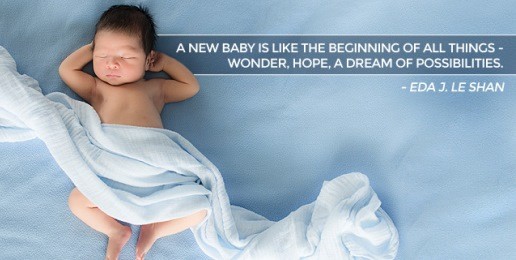
$217,000 is a large chunk of change. You could buy a mining ghost town in California, a new Bentley, or the designer wedding dress of Princess Marie-Chantal for that amount of money. $217,000 also happens to be the net financial benefit to society if you become a parent, according to a recent study by Lee et al.
Economists, who have a penchant for coining arcane jargon, call this 217K the net fiscal externality of becoming a parent. By externality they mean the public benefit (or cost) of a private transaction.
Most people pay far more attention to whether or not their actions benefit themselves than to whether these benefit society as a whole. The question, “What’s in it for me?” swamps all other concerns. An economist would say that most people ignore the externalities of their actions.
So it is with becoming a parent. Many couples, before deciding to conceive a child, ask themselves what they will gain or lose by becoming parents. Other couples simply trust in God to send them the right number of children. Neither group is much concerned about whether, by becoming parents, they are benefiting society as a whole, although they would both assert that there is such a benefit.
The Left tends to worry a lot more about the externalities of bringing children into the world. Of course, those who see babies as little more than nasty little carbon emitters are generally convinced that the costs to society of becoming a parent far outweigh the benefits. Many remain childless.
Lee et al decided to crunch the numbers and see if parenthood benefited society or not. They asked the question: “By the end of his or her life, does becoming a parent contribute more to the public than it takes away?”
The researchers calculated that childless individuals added $328,000 to the common good over their lifetime, whereas a parent adds a whopping $545,000. So society receives $217,000 in benefits when an individual decides to become a parent.
Note that the study focused on “the transition to parenthood, that is, the costs and benefits of leaving childlessness and becoming a parent.” It did not go on to consider the benefits to society of a second, third, or higher order child, which would presumably be substantial.
Anticipating criticism from the environmentalists, the authors even tried to calculate the “environmental costs” of childbearing. At PRI, we are generally suspicious of “greenhouse costs per person,” since we believe the net impact of global warming—if it occurs—is not man-made. Still, they concluded that childbearing remains a net positive to society even after deducting such “costs.”
Although we at PRI are very excited by this study, we do not suggest that parenthood ought to be forced on those who are unwilling or unready to be parents. People have a natural right to determine for themselves the number and spacing of their children.
But we do want to shout from the rooftops that those persons who decide to become parents are doing the rest of us a tremendous favor, and their sacrifice ought to be recognized and rewarded by the larger society. We propose that couples who decide to have children should be sheltered from income and social security taxes. That is to say, some of the externality that they confer on the rest of society ought to be returned to them. This is simple justice.
Finally, economists can measure dollars and cents, but they can’t measure love. The “value” of selflessly giving oneself to another person who is completely dependent upon you far defies calculation. The most that economists can do is measure the side effects of such sacrificial love, such as increased motivation or increased investment in the future. Because sacrificial love is such a precious commodity, even its side effects are valuable—to the tune of $217,000.
This article was originally posted at the Population Research Institute’s blog.





















